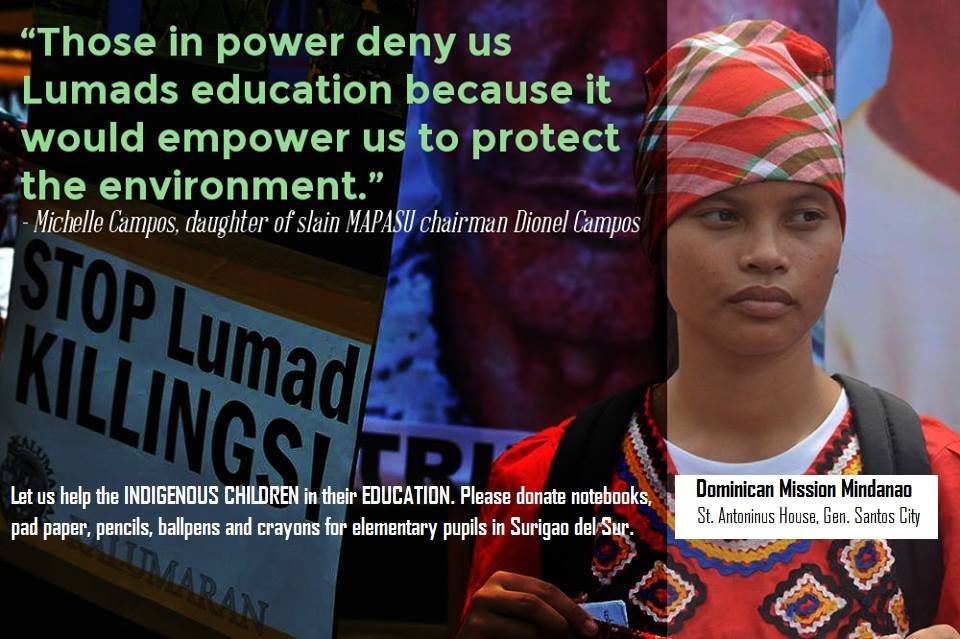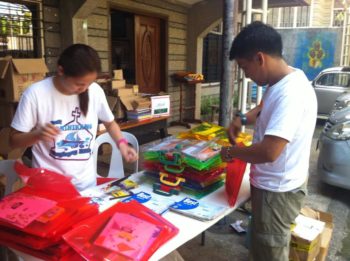
#Help Rebuild Lumad Communities and Schools
IT was my second time to be able to visit Tandag City. My first visit to Tandag City was in 2012 when we brought school supplies for the poor Manobo school children in the hinterlands of Surigao del Sur. It was in July 2011 when I saw a television documentary showing how Manobo school children in remote areas of Surigao Del Sur would use charcoal for writing using banana leaves or any dried leaves to write on. When I was assigned in Davao City in 2011, I made a promise to myself that I will look for those children and bring pencils and paper and other school supplies for them.
Later on, I found out that it was a non-government organization known as Tribal Filipino Program of Surigao del Sur (TRFPSS) that is trying to provide education for the poor Manobo children. Together with Norma Ampis, the executive director of TRFPSS, I visited one of their tribal community schools in Sitio Liangabon, Barangay Calatngan, Municipality of San Miguel.
Last September, I learned about what was happening in Surigao Del Sur, and how members of the tribal communities there are being harassed resulting to the killing of some of their leaders. I remembered the community I visited three years ago in Sitio Liangabon. I remembered a certain Datu Onyon whom I met there and told me that they do not want mining to destroy their community.
I felt I have to do something to help our poor indigenous brothers and sisters there. And the only way I know how was to help the poor school children in their education. I am a core group member of a civilian volunteer organization known as Black Pencil Project. Our organization’s goal is to help the poor school children in remote and indigenous communities in their education by providing their basic needs in terms of school supplies.
Over a period of two months, we were able to gather enough school supplies that can provide study kits for at least 500 pupils. Thanks to the help of some schools in General Santos City and the support of their students, and also our mass goers at Our Lady of Manaoag Chapel. Each study kit consists of a plastic envelop which contains notebooks, pad paper, pencils, ball pen, crayons and ruler. On November 24 and 25, 2015, we repacked the study kits in our Dominican House in Bajada, Davao City. With the help of our house boys and a couple of volunteers, we were able to complete the preparation of the study kits.
Together with Nermric Kiel Umali, a Lay Dominican from Digos; Ryan Baño, an employee of San Pedro College; Nor Crame, my high school classmate; and Alberto Basiga, our driver, we reached Tandag City Sports Complex on November 26, 2015. It was a 6-hour land trip from Davao City to Tandag City. Madam Norma Ampis accompanied us to turn over our donations to the volunteer teachers. There were more than 500 families from 25 lumad communities who sought temporary shelter at the city’s sports complex. The children were holding classes in makeshift tent classrooms, facilitated by volunteer teachers.
We saw the delight in the children’s eyes when they received their study kits. They were hungry for knowledge. Indeed, education is the great equalizer!




No Comments